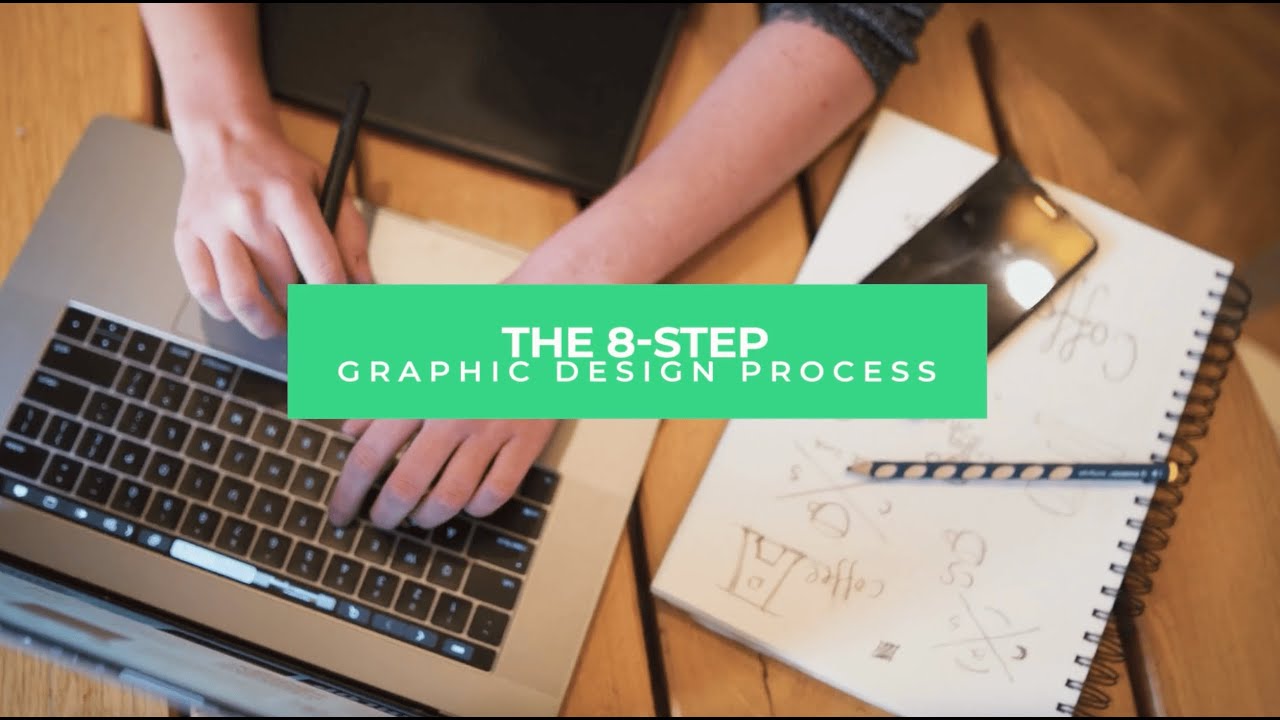
As we sail through the sea of logo-for-your-community/” title=”Crafting a Heartfelt Logo for Your Community”>pixels and bytes, one thing remains constant: the power of a well-designed logo. In this age of digital transformation, logos are no longer just static images; they are living, breathing entities that evolve with the click of a mouse. So buckle up, dear readers, as we embark on a wild ride through the realm of logo design in the digital age. Let’s explore how this once simple art form has transformed into a dynamic, interactive masterpiece that can make or break a brand faster than you can say “Ctrl+Z”.
The Evolution of Logo Design in the Digital Age
In today’s digital age, logo design has come a long way from its humble origins. Gone are the days of simple, static logos that were easily forgotten. With advancements in technology and design tools, logos have evolved into dynamic, engaging pieces of art that capture the essence of a brand in a single image.
One of the biggest changes in logo design has been the shift towards responsive design. Logos are no longer confined to a single format or size. They need to look just as good on a tiny smartphone screen as they do on a giant billboard. This has led to logo designers becoming experts in creating versatile, adaptable logos that can be scaled up or down without losing their impact.
Another key evolution in logo design is the move towards simplicity. In the digital age, where attention spans are shorter than ever, logos need to be instantly recognizable and memorable. Complex, cluttered designs just don’t cut it anymore. Brands are opting for clean, minimalist logos that make a bold statement without saying too much. Think Nike’s iconic Swoosh or Apple’s sleek apple silhouette.
With the rise of social media and digital marketing, logos also need to be designed with versatility in mind. Logos now need to look just as good on a website header as they do on an Instagram post or a mobile app icon. This means logo designers need to consider how their designs will translate across different platforms and mediums, creating logos that are not only visually appealing but also functional in the digital world.

Key Trends Shaping Modern Logo Design Processes
Logo design has come a long way from the days of using clip art and WordArt. As we move further into the 21st century, there are several key trends that are shaping the way designers approach creating logos. These trends not only reflect current design aesthetics, but also the ever-evolving technology that influences our visual culture.
One major trend in modern logo design processes is the emphasis on simplicity. Gone are the days of overly detailed logos that are difficult to reproduce at smaller scales. Designers are now opting for clean, minimalistic designs that are easily recognizable and versatile across different mediums. Think of iconic logos like Apple or Nike – simple shapes and colors that pack a powerful punch.
Another trend that is shaping logo design processes is the focus on responsiveness. In today’s digital age, logos need to be adaptable to different screen sizes and resolutions. Designers are creating logos that can seamlessly transition from a website header to a social media icon without losing their impact. This means thinking about how the logo will look on a smartphone, a billboard, or even a smartwatch.
Lastly, personalization is becoming a key trend in modern logo design. Brands are looking for logos that speak to their unique identities and values. Designers are incorporating custom typography, hand-drawn elements, and vibrant colors to create logos that stand out from the crowd. After all, in a sea of generic logos, it pays to be bold and memorable.

Impacts of Technology on Logo Designers and Clients
Technology has revolutionized the world of logo design, bringing with it both benefits and challenges for designers and clients alike. From advanced design software to online collaboration tools, the impacts of technology are undeniable in this creative field.
For logo designers, technology has enabled them to unleash their creativity like never before. With tools like Adobe Illustrator and Canva at their fingertips, designers can experiment with colors, fonts, and shapes to bring their visions to life. The possibilities are endless!
On the flip side, clients now have higher expectations when it comes to logo design thanks to technology. They want logos that are not only visually appealing but also versatile across digital and print platforms. This means logo designers have to stay on top of the latest design trends and software updates to meet these demands.
Despite the challenges, one thing is for sure: technology has definitely made the world of logo design more exciting and dynamic. With AI-powered logo generators and online design marketplaces, both designers and clients have more options than ever before. Embracing these technological advancements is the key to staying relevant in this ever-evolving industry.

Challenges and Opportunities in Digital Logo Design
Let’s face it, designing a digital logo isn’t as easy as it seems. There are plenty of challenges that come with the territory, but fear not! With challenges come opportunities for growth and creativity. Here’s a look at some of the common struggles and exciting possibilities in the world of digital logo design:
One of the biggest challenges in digital logo design is creating something truly unique that stands out from the competition. It’s easy to get lost in a sea of generic logos, but with a little creativity and a lot of trial and error, you can come up with a design that truly captures the essence of a brand. Don’t be afraid to think outside the box and push the boundaries of traditional design norms.
Another hurdle in digital logo design is finding the right balance between simplicity and complexity. A logo should be memorable and easy to recognize, but it also needs to convey the right message and reflect the brand’s identity. Striking that perfect balance can be tricky, but it’s where the magic of design happens. Embrace the challenge and use it as an opportunity to experiment with different styles and techniques.
While challenges are inevitable, so are the opportunities for growth and development in the world of digital logo design. Remember, every obstacle you overcome is a chance to learn something new and improve your skills. So don’t be discouraged by the setbacks – embrace them with a sense of humor and a healthy dose of creativity. Who knows, you might just stumble upon your next big breakthrough!

Innovative Tools and Software for Creating Logos
Looking to create a logo that will make your competitors green with envy? Look no further than these innovative tools and software designed to take your logo game to the next level!
With Canva’s user-friendly interface and endless design options, you’ll be whipping up professional-looking logos in no time. Their drag-and-drop feature makes it easy to experiment with different fonts, colors, and layouts until you find the perfect combination for your brand.
For those looking to add a bit of flair to their logos, Adobe Illustrator is the way to go. This powerful design software allows you to create intricate and detailed logos with ease. Plus, with its extensive library of shapes, icons, and patterns, the possibilities are endless!
And who could forget about Logojoy? This AI-powered logo maker takes the guesswork out of logo design by generating custom logos based on your preferences. Simply input your company name, choose a few design styles, and let Logojoy work its magic!
Strategies for Successful Digital Logo Design Implementation
When it comes to digital logo design, you want to make sure your implementation is top-notch. Here are some strategies to help you succeed:
- Keep it simple: Don’t overcomplicate your logo design with too many elements. Remember, less is more! Your logo should be easily recognizable and memorable.
- Choose the right colors: Color psychology plays a huge role in branding. Make sure you choose colors that align with your brand’s message and target audience.
- Think about scalability: Your logo should look good across all platforms and sizes. Make sure it’s easily resizable without losing quality.
And remember, a successful digital logo design isn’t just about creating a pretty picture. It should effectively communicate your brand’s values and create a lasting impact on your audience. So take your time, do your research, and don’t be afraid to think outside the box! Good luck!
Future Prospects of Logo Design in the Digital Landscape
As we zoom into the future of logo design in the digital landscape, the possibilities are as endless as a scroll through a never-ending feed of cat memes. With advancements in technology and design software, logo design is set to reach new heights that even the most skilled logo designer couldn’t have fathomed.
Imagine a world where logos not only visually represent a brand, but also come to life with interactive elements. Your logo could dance, sing, or even high-five your customers as they scroll through your website. The days of static logos are a thing of the past – the future is all about dynamic, engaging designs that make your brand stand out in a sea of static images.
Furthermore, with the rise of AI and machine learning, logo design is poised to become more personalized and targeted than ever before. Gone are the days of one-size-fits-all logos – in the future, logos will be tailored to each individual customer based on their browsing history, preferences, and even mood. Your logo could change colors, shapes, and even emojis based on who is looking at it. The possibilities are as mind-boggling as trying to figure out which came first, the chicken or the egg.
In conclusion, the are bright, colorful, and as unpredictable as a toddler on a sugar rush. Get ready to embrace a world where logos are more than just static images – they’re interactive, personalized, and full of surprises. So buckle up, because the future of logo design is going to be a wild ride.
FAQs
How has digital technology changed the landscape of logo design?
Oh, let me count the ways! With digital tools, designers now have unlimited creative possibilities at their fingertips. From intricate details to bold colors, the sky’s the limit when it comes to crafting the perfect logo.
What are some benefits of using digital tools for logo design?
Well, for starters, no more messy paint or ink spills! Digital tools allow designers to easily make edits, tweaks, and revisions with just a few clicks. Plus, they can easily share their work with clients or collaborators without having to physically mail off sketches.
How has the rise of social media impacted logo design in the digital age?
Social media has completely changed the game! Logos now have to be versatile enough to look good on everything from tiny profile pictures to massive banners. Plus, with the constant scroll of feeds, logos need to be eye-catching and memorable to stand out in the digital crowd.
What advice do you have for businesses looking to create a digital-friendly logo?
Keep it simple, silly! A clean, uncluttered logo will translate well across all digital platforms. Make sure to test your logo at various sizes to ensure it remains recognizable and impactful no matter where it’s displayed.
Conclusion: Embracing the Pixels!
And there you have it, folks! The digital transformation of logo design is well underway and it’s time to hop on this pixelated bandwagon. So, sharpen those digital pencils, fire up those design programs, and let your creativity run wild. Who knows, maybe your next logo creation will be the talk of the town…or at least the talk of your Instagram followers. Remember, in a world where everything is going digital, don’t get left in the Stone Age with your logo design. Embrace the pixels and watch your brand soar to new heights!












